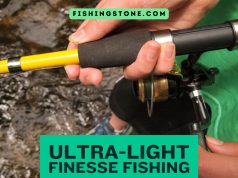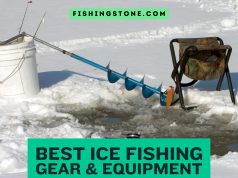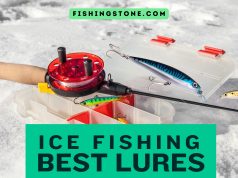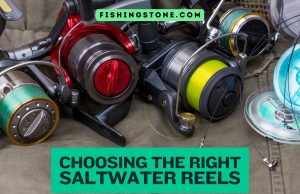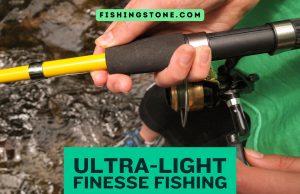Buying a houseboat is an exciting step for any water lover. It can be a perfect place to store boats, relax, enjoy the water anytime and can also be a place to live. But choosing the right boathouse takes careful thought. This guide will show you how to find the best houseboat, what to check before buying, and tips to avoid common mistakes. With these pointers, you’ll be ready to navigate the waters of purchasing your first houseboat with confidence.
Buying a Houseboat Guide to Get Started
Thinking of buying a houseboat Video.The allure of living on the water, with ever-changing views and the gentle rocking of waves, has led many to consider trading traditional homes for a life afloat. Houseboats offer a unique blend of adventure, tranquility, and often, a more affordable alternative to land-based property in desirable locations.
However, the journey to becoming a houseboat owner is distinct from buying a conventional home and requires careful consideration. This comprehensive guide will navigate you through the process, from understanding the basics to securing your floating dream.
Can I Buy a Houseboat with Just a Bill of Sale?
Many houseboats are sold by private owners. When you’re buying a boat from private seller, it’s crucial to understand the documentation. Can I buy a houseboat with just a bill of sale? While a bill of sale is important as proof of purchase, it’s often not enough on its own, especially for larger vessels. You’ll typically need additional documentation, such as the title or certificate of origin, registration papers, and a clear record of previous ownership. To ensure a smooth transaction when buying a boat privately, always:
- Verify the seller’s identity and ownership.
- Check for any outstanding liens against the vessel.
- Ensure all necessary documents are provided and properly transferred.
- Consider using an escrow service for larger transactions.
Questions to Ask Before Buying a Houseboat
The more information you gather upfront, the fewer surprises you’ll encounter down the line. Here are crucial questions to ask before buying a houseboat:
- Maintenance History: Has the houseboat been regularly maintained? Ask for maintenance logs, repair receipts, and details on major systems (engine, electrical, plumbing, sanitation).
- Engine & Mechanicals: What type of engine does it have? How many hours are on it? When was it last serviced? Are there any known issues with the propulsion system, generator, or HVAC?
- Hull Condition: What is the hull made of (fiberglass, steel, aluminum, wood)? When was it last hauled out of the water for inspection and bottom painting?
- Systems & Appliances: Are all onboard systems (water, electrical, sewage, heating, cooling) and appliances (refrigerator, stove, water heater) fully functional?
- Mooring & Location: Where is it currently moored? Is the slip transferable? What are the marina fees and rules?
- Documentation: Does the seller have all clear titles, registrations, and permits? Are there any liens on the vessel?
- Previous Use: Has it been a full-time residence, a weekend getaway, or a rental? This can indicate wear and tear patterns.
- Winterization: How is it prepared for winter if you’re in a cold climate?
- Reason for Selling: Understanding the motivation can sometimes provide insights into the boat’s condition or the owner’s urgency.
Inspect The Houseboat
This is arguably the most critical step. Just as you wouldn’t buy a house without an inspection, houseboat inspection before buying is non-negotiable. For a comprehensive assessment, hire a qualified marine surveyor specializing in houseboats. They will provide a detailed houseboat inspection report, covering the hull, engine, electrical systems, plumbing, structural integrity, and overall condition.
When inspecting a houseboat before purchase (if that’s also on your radar), similar principles apply regarding structural integrity and utility connections, but the focus shifts from a mobile vessel to a fixed structure. Ensure any “buying a houseboat inspection ready” claims are backed by a recent, professional houseboat inspection report and a thorough houseboat inspection checklist.
For the houseboat, the surveyor will look for:
- Hull integrity: Cracks, blisters (fiberglass), rust (steel), rot (wood), signs of impact.
- Engine & Propulsion: Fluid levels, leaks, excessive corrosion, shaft alignment, propeller condition.
- Electrical Systems: Wiring condition, battery banks, shore power connections, panel integrity.
- Plumbing & Sanitation: Leaks, tank conditions (freshwater, blackwater), pump functionality.
- Deck & Superstructure: Leaks, soft spots, stanchion integrity, condition of windows/hatches.
- Safety Equipment: Fire extinguishers, life vests, flares, CO detectors.
Don’t skip the sea trial if the houseboat is operational. This allows you to test the engine, steering, and other systems under real-world conditions.
What Will Be The Houseboat Insurance Cost?
Securing insurance for your floating home is vital. Houseboat insurance cost varies widely based on factors like the boat’s value, age, length, location, and your boating experience. It typically covers hull damage, liability, personal property, and sometimes even medical payments.
Do you need insurance for houseboats? If you’re considering buying a houseboat, separate insurance might be required to cover the structure itself against perils like fire, wind, or collapse, and potentially liability. This is similar to homeowner’s insurance. For your houseboat, specific houseboat insurance company policies might cover it while docked within a boathouse, offering comprehensive houseboat insurance coverage for the vessel and its shelter. Your marine insurance broker can advise on combining or separate policies. Always obtain quotes from several reputable marine insurance providers to compare houseboat insurance coverage options for your specific needs.
What’s the Cost of Running the Houseboat for a Year?
Cost of Running the Houseboat Video.Beyond the purchase price, understanding the ongoing expenses is critical. What’s the cost of running the houseboat for a year? This can include:
- Mooring/Dockage Fees: Often the largest recurring expense, varying greatly by marina and location.
- Insurance: As discussed, typically an annual premium.
- Fuel: Dependent on how much you cruise.
- Maintenance & Repairs: Regular engine servicing, hull cleaning, pump-outs, bottom painting every few years, and unexpected repairs.
- Utilities: Electricity, water, internet hookups at the marina.
- Winterization/De-winterization: If in a cold climate.
- Registrations & Permits: Annual state/federal fees.
- Pump-out Fees: For blackwater tanks.
Budgeting an additional 10-15% of the houseboat’s value annually for these costs is a good starting point, especially for maintenance.
Hire a Realtor to Help You Buy the Houseboat
While not always necessary for smaller boats, when buying a houseboat, especially a larger, residential one, hire a realtor to help you buy the houseboat who specializes in marine properties or houseboats. They can:
- Help you find suitable listings, including those not publicly advertised.
- Navigate the unique legal aspects of marine transactions.
- Negotiate on your behalf.
- Recommend reputable surveyors, financing options, and insurance providers.
- Assist with title transfers, lien searches, and other paperwork specific to vessel ownership.
Their expertise can save you significant time, money, and potential headaches when your goal is to own the houseboat.
Pros and Cons of Buying the Houseboat
What Are the Boat House Pros and Cons Video.Like any major purchase, buying a houseboat has advantages and disadvantages.
Pros:
- Unique Lifestyle: Experience life on the water, with ever-changing scenery and a sense of freedom.
- Cost-Effective (Sometimes): Can be less expensive than traditional homes in prime waterfront locations.
- Mobility: The ability to move your home, albeit limited based on size and waterways.
- Community: Many marinas foster a strong, friendly houseboat community.
- Minimalist Living: Encourages decluttering and simpler living.
Cons:
- Maintenance: Requires ongoing marine-specific maintenance, which can be costly and time-consuming.
- Limited Space: Generally smaller living areas than land-based homes.
- Location Constraints: Subject to marina availability, rules, and fees.
- Financing Challenges: Often harder to secure traditional mortgages; marine loans are different.
- Depreciation: Like cars, boats generally depreciate over time, unlike real estate.
- Weather Dependency: Life on the water is more exposed to weather elements.
Tips to Make Your Houseboat Purchase a Success
Houseboat 3 TIPS For BUYING Process Video.To ensure a smooth transition into houseboat living, here are some final tips to make your Houseboat purchase a success:
- Define Your Needs: How big do you need? What features are essential? Will you live on it full-time or part-time?
- Research Marinas: Before you buy, know where you’ll dock it. Understand marina rules, amenities, and costs.
- Get Pre-Approved for Financing: Marine loans differ significantly from mortgages. Talk to lenders specializing in marine financing early on.
- Account for Hidden Costs: Factor in delivery, launching, surveys, repairs, and initial outfitting.
- Learn the Ropes: If you’re new to boating, consider taking a boating safety course and familiarize yourself with navigation, docking, and maintenance.
- Be Patient: The right houseboat might not appear overnight. Don’t rush the process.
Buying a houseboat is an exciting endeavor that opens the door to a unique and rewarding lifestyle. By understanding the distinctions between a boathouse and a houseboat, diligently researching, conducting thorough inspections, budgeting for ongoing costs, and seeking expert advice, you can navigate the complexities of the purchase with confidence. Your dream of living on the water is within reach – just be prepared to embark on a journey that’s as enriching as the destination itself.
Check Out Our Other Posts
- Pros and Cons of Owning a Houseboat
- Living on a Houseboat: What You Need to Know
- Enjoy Quality Time with Your Kids Fishing: How to Make Lasting Memories
- Amazing Eagle Videos Catching Fish: A Beautiful Spectacle
- Funny Kids Fishing Clips: Hilarious Moments on the Water
- The Best Fish and Chips Recipe: Get Perfectly Crispy Chips Every Time
Buying a Houseboat Frequently Asked Questions
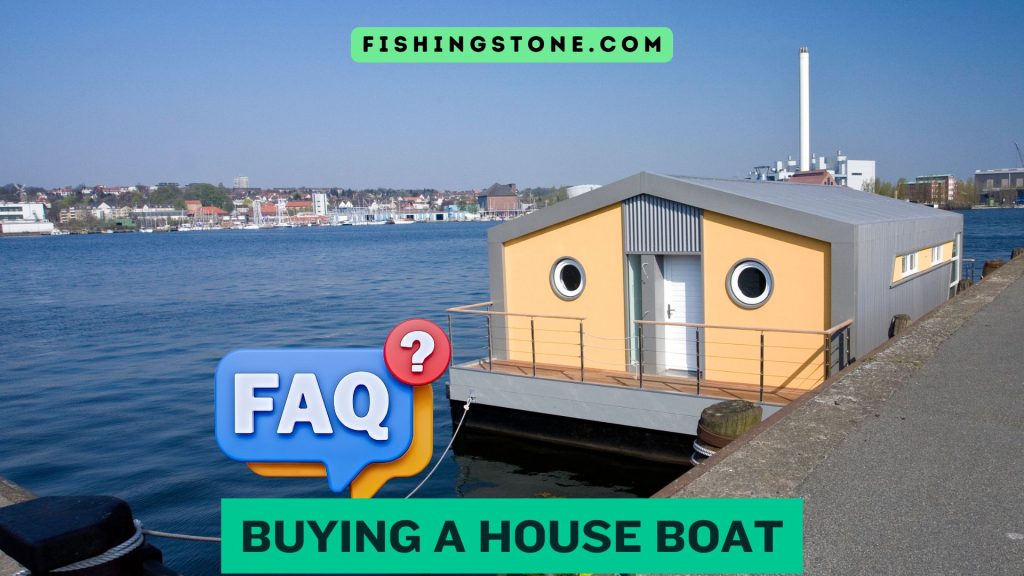
Is buying a houseboat a good investment? Unlike traditional real estate, houseboats generally depreciate over time, similar to vehicles. They should be considered a lifestyle investment rather than a financial one for appreciation. However, they can offer a more affordable housing solution in certain desirable areas.
Can I get a mortgage for a houseboat? No, you typically cannot get a traditional mortgage for a houseboat. You’ll need a marine loan, which is different from a mortgage. Marine loans usually have shorter terms, higher interest rates, and require larger down payments.
How difficult is it to maintain a houseboat? Houseboats require consistent maintenance, similar to a traditional home combined with a boat. This includes engine servicing, hull cleaning, plumbing checks, and general upkeep. If you’re not mechanically inclined, factor in the cost of hiring professionals.
Can I live year-round in a houseboat?
Can I live year-round in a houseboat? It depends on the specific marina, local zoning laws, and the climate. Many marinas have strict rules about liveaboards, and some areas restrict it altogether. You’ll also need to consider utility hookups, waste management, and winterization in colder climates. Always check with the marina and local authorities before buying a houseboat for residential purposes.
Do houseboats have property taxes? Generally, houseboats are considered vessels, not real property, so they are typically subject to sales tax at purchase and then annual registration fees or excise taxes, not traditional property taxes. However, regulations vary by state and sometimes by county or municipality, especially if the houseboat is permanently moored and plumbed like a home. Always check local laws.
How much does houseboat insurance cost compared to a traditional home? Houseboat insurance cost can vary widely but is often comparable to or slightly higher than standard homeowners insurance, especially for liveaboards. Factors like the boat’s value, age, navigational area, and your claims history heavily influence the premium. It’s often more specialized than a typical home policy due to marine risks.
What should be included in a houseboat inspection checklist?
What should be included in a houseboat inspection checklist? A comprehensive houseboat inspection checklist should cover structural integrity (pilings, framing, decking, roof), utility connections (electrical, water, septic/sewer), overall condition of the building envelope (walls, windows, doors), safety features (ladders, railings), presence of required permits, and signs of water damage, rot, or pest infestation. A professional familiar with waterfront structures is highly recommended.
Is it safe to buy a houseboat with just a bill of sale? While possible for very small, unregistered boats (like dinghies or canoes), it’s generally not recommended for anything with a motor or a significant value. For any vessel that requires registration or a title, you absolutely need to transfer the title and registration properly. A bill of sale alone does not legally transfer title in most jurisdictions and can lead to significant problems down the line, including difficulty with registration, insurance, or proving ownership.
What’s the average lifespan of a houseboat? The lifespan of a houseboat varies greatly depending on its construction material, quality of build, and most importantly, the consistency and quality of its maintenance. A well-maintained fiberglass or steel houseboat can last for many decades, often 40-60 years or more, with proper care and periodic refurbishments.
Thank You for Reading Our Buying a Houseboat Guide to Get Started Post
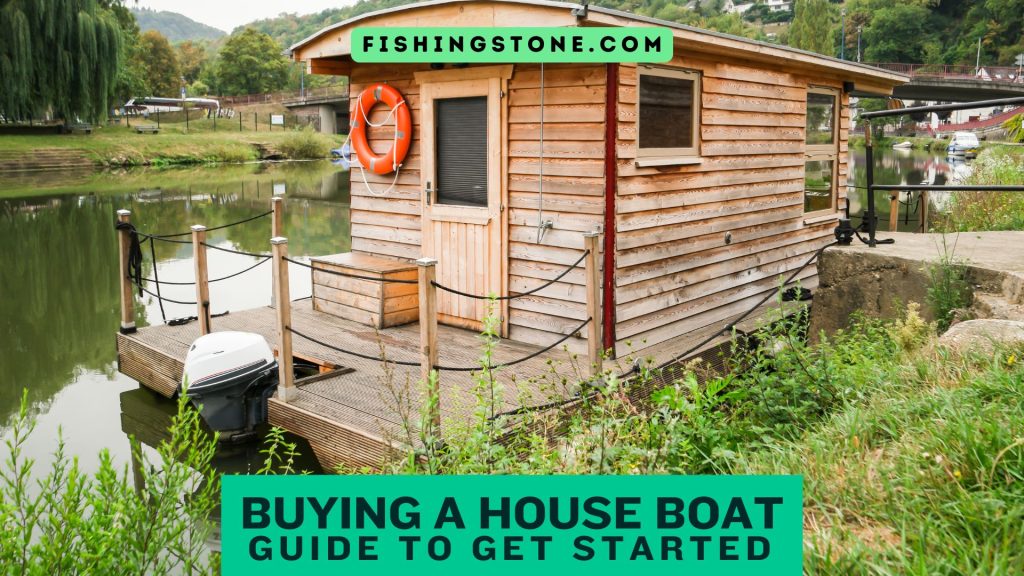
Thank you for reading our Buying a Boathouse Guide to Navigating the Waters post. We hope the tips and advice help you make smart decisions. Buying a houseboat can be a great way to live on the water. It’s important to understand the costs, maintenance, and rules before you buy. If you have more questions, keep researching or talk to experienced houseboat owners. We appreciate your time and hope this guide made your journey easier.
Happy fishing!
We post on several sites on Socia Media. By joining us on your favorite ones you can get updates on our latest Fishing Posts.
Find us on Facebook – Twitter – Pinterest – YouTube
Hope you have fun Fishing every day. Fish On!



